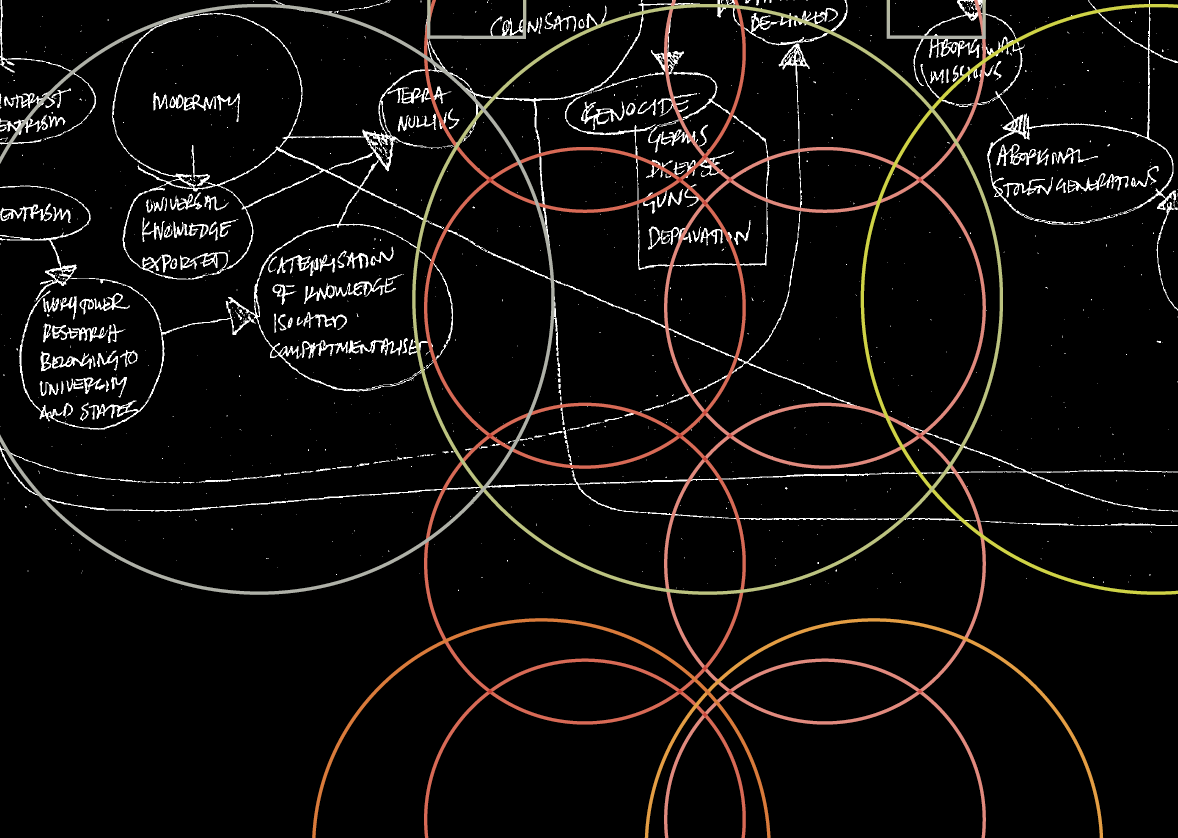Cognitive Redirective mapping: designing futures that challenge anthropocentrism | A paper co-written by Tristan Schultz and Bec Barnett of Relative Creative.
Humanity is facing, at both global and local levels, unprecedented challenges as the future, a byproduct of modernity, hurtles towards us. These future challenges are complex and world changing and include, but are not limited to, climate change, population growth, increasing poverty, the continuation of colonialism, war and the effects of technology. As designers we need to make use of the power that design holds not just to recognise, consider and design for these futures that we are facing but equally, to design for the ontological redirection of destructive future scenarios.
To address these destructive futures and harness the transformative power that design holds new design thinking approaches need to be developed and explored. This paper will explore the use of Cognitive Redirective Mapping as a design thinking approach. Cognitive Redirective mapping has been designed as a process that challenges our destructive, anthropocentric being-in-the-world through an exploratory approach to the production of knowledge that traces relational impacts of things with regard to their indivisible relation to the creation and destruction of a future for our species.
Read the full paper.
